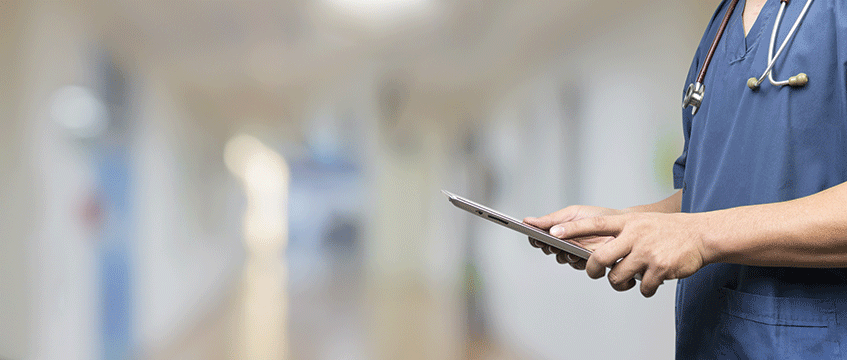The role of technology in the future of cities has long been debated, but now a new digital revolution is storming the country – digital health. With the outbreak of Covid-19 and the ensuing lockdown, the role of tech in the delivery of healthcare and in keeping citizens fit and well has risen to the top of the agenda.
And Leeds has the opportunity to lead the way. It has already been successful in attracting digitally led occupiers to the city, in the form of Sky and Channel 4 to name but two. Now it is becoming a hub for digital health.
“We have all the right ingredients to be pioneers in digital health,” says Roz Davies, managing director of digital healthcare consultant mHabitat. “And not only that, we’ve got quite a lot of the big national players based here – NHS England, NHS Digital, the Yorkshire & Humber Academic Health Science Networks – and our universities are leading the way with quite a lot of different aspects, some digital, some not so digital. What we’re doing here is a bit of a lab for digital health innovation.”
And that lab or hub of innovation is fundamental for the future growth and success of the city, says Shoosmiths partner Richard Outhwaite.
“I think it’s absolutely fundamental to encourage people to work and live in Leeds,” he says. “Look at all the different sectors that it will encourage and help, such as retail, hospitality and residential.”
For Outhwaite, being able to gather recycling, air quality, traffic flow, footfall data and more on a city scale is key to making the city better and more attractive to people and business.
Davies reckons Leeds is already doing pretty well on that front. “Leeds is leading at inclusive digital transformation,” she says. “What this city does is think about it from a citizen and a community perspective and it is really keen to blend those two things together. That’s what’s really exciting about this.”
For Cleveland Henry, director of UKCloud Health, digital health needs to be embedded into the design of a city. “It needs to be built into a city’s fabric as much as lights are,” he says.
And while Leeds’ landlords and tenants are starting to realise the importance of digital health and how they can utilise that information, Outhwaite, Davies and Henry still feel that the city could do more to grasp the opportunity in front of it to make itself a standout leader in the field.
Leeds already accounts for around a fifth of all the UK’s digital health jobs, with the city region home to 63% of all health-tech eco-system businesses, according to the Local Enterprise Partnership. Expanding those numbers and making Leeds a true hub for digital health innovation will be crucial to its economic recovery post Covid.
Leeds is becoming a “hotbed for a lot of private digital health technology organisations,” says Henry. “We’ve got to take advantage of that.”
“What we have to do going forward is take on what we’ve learnt from this crisis,” adds Davies. “This crisis has really propelled digital health forward. We are in the window of opportunity now.”
And that window of opportunity has come at a time when the region should be able to take greater control over its own governance following the signing of a £1.8bn West Yorkshire devolution deal in March.
What is digital health?
Digital health is all about using technology to help improve individuals’ health and wellness and about using digital transformation and disruptive technologies to revolutionise the healthcare sector. The digital health sector is expected to be valued at as much as $500bn (£383bn) by 2025 and the UK is a leader in the field.
The panel
- Roz Davies, managing director, mHabitat
- Cleveland Henry, director, UKCloud Health
- Richard Outhwaite, partner, Shoosmiths
Watch the conversation in full here

To send feedback, e-mail louise.dransfield@egi.co.uk or tweet @DransfieldL or @estatesgazette











